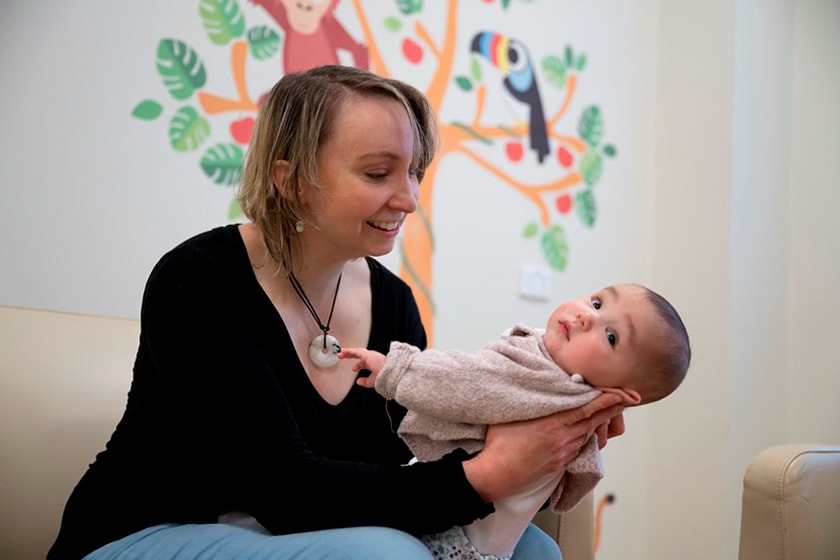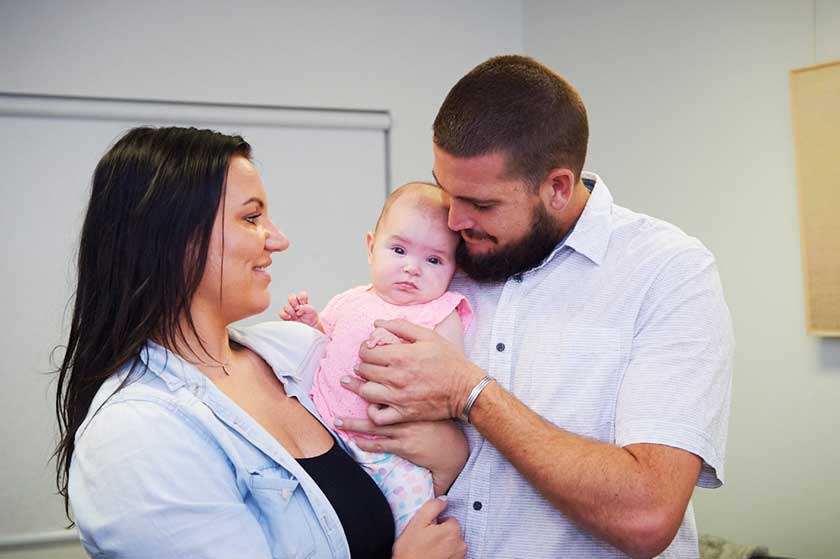This change will continue through your pregnancy, birth and beyond with decisions to be made about your pregnancy care, maternity and/or paternity leave, birthing hospital, birth of your baby, changes to your home to welcome your new addition to your family, to mention but a few. These can become all too confusing and overwhelming.
Adding another layer of complexity to what you are already experiencing is the ever presence of social media, popular culture and availability of infinite information.
Within these, you will find a number of myths on how to be a good mother, in fact the best mother.
These myths of motherhood can add pressure to try and conform to what you may not be actually be experiencing, resulting in increased feelings of inadequacy, guilt and shame.
Many women and their families fear others perceiving them as a ‘bad mother’ or labelled as a ‘failure’. This can result in not seeking help or delaying talking to someone about their situation.
This can be a very lonely and confusing time.
If this resonates with you, don’t worry, you are not alone.
One in five mothers and one in 10 fathers will experience a mental health issue in the perinatal period – that is the period between conception and one year post-partum.
Let’s take a closer look at some common myths of motherhood which could be adding to an already challenging time for you and your family.
1. Feeling happy all the time once you become a mother.
Most mothers will experience a full range of emotions whilst adjusting to motherhood. These can include, happiness, joy, anxiety and anger. It is a physically demanding time which can leave you feeling exhausted and overwhelmed. Babies do not come with a manual on how to care for them so a little experimenting and flexibility goes along way as you both learn about each other.2. You should totally immerse yourself in being a mum.
We all need down time, and need to look after ourselves. It’s how we recharge ourselves, in turn replenishing our energy levels so we can be there for our baby and family.3. Breastfeeding is easy
We all need assistance and support when learning a new skill. Breastfeeding can be challenging with your first baby and/or subsequent babies. It is common for new mothers to struggle in establishing breastfeeding, feeling guilty if they are not able to breastfeed their babies fearing this will have an impact on their bond. Remember, breastfeeding is one of many things you will do for your baby and it is the warm and loving consistency of your interactions which adds to your baby feeling connected to you.4. Motherhood is easy
Assuming all women will know instinctively how to care for their baby can make you feel there is something wrong with you. In fact, most mothering skills are learnt through interactions and guidance from others. This is true, even though, most women will have varying degrees of maternal instinct. Learning new skills such as: reading your baby’s cues and the practicalities of feeding, settling and soothing your baby can be complicated by sleep-deprivation and just pure exhaustion of adjusting to parenthood.5. You will have an instant connection with your baby
Not all women have an instant connection with their baby. In fact, just like any other relationship, most women develop connection with their babies over time. This does not mean you do not love your baby, it is just a normal process.6. The ‘good enough’ mother
The relationship between perfection and motherhood is a troubled one! Most mothers strive to be the perfect mother with some experiencing difficulties emotionally when unable to achieve the goals they set for themselves. The Good Enough Parent is a concept derived from the work of Dr D Winnicott (1953), British paediatrician and psychoanalyst. After observing thousands of babies and their mothers, he concluded that babies and children actually benefit when their mothers fail them in manageable ways.What makes a good enough parent?
A good enough parent pays close attention, is interested in and attunes to the emotional and mental experiences of their child. This attunement allows the child to feel seen and known and helps a developing baby learn how to make sense of their own and others emotions and mind states.
7. Mothers can do it on their own
Have you heard the phrase ‘It takes a village to raise a child’? We are for the most part social beings living in dynamic and cooperative societies, supporting one another in our day to day tasks. We live with people, work with people, socialise with people and have close relationships and associations with people. Caring for children, traditionally, has also been a shared responsibility among family. This has been made a little trickier with couples often living far away from close family and friends, support at times is scarce and mothers tend to identify asking for assistance as a sign of weakness. This is far from the truth. Asking for help and assistance demonstrates strength and wisdom with acceptance of help indicating you are a capable mother, placing your baby’s needs at the centre of your thoughts and actions.There are many more myths of motherhood, it is important to openly challenge these myths and validate all women’s experience of motherhood. No mother or family should feel they are alone and unable to access help when in need. We all have a part to play in breaking down the barriers and stigma associated with difficulties and risk of mental health issues, experienced during the perinatal period by some families.
St John of God Health Care is a proud partner of Perinatal Mental Health Week 2022, which takes place annually in November. The aim of Perinatal Mental Health week is to raise awareness, provide education and support on the challenges facing parents and families in the perinatal period and thus reduce the stigma associated with mental health issues.
If you or someone you know are experiencing difficulties, don’t wait. Reach out and talk to someone. We, at St John of God Health Care, can provide you with guidance on how to access help.






